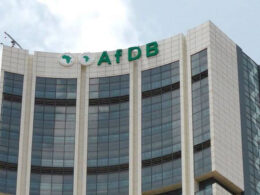Lagos, Nigeria – The cost of food in Nigeria has surged dramatically, rising by 97% year-on-year from November 2023 to November 2024. This alarming increase was revealed in the National Bureau of Statistics (NBS) Selected Food Price Watch report for November 2024, published on January 17, 2025.
According to the data, the average cost of food nationwide rose from ₦1,449.57 in November 2023 to ₦2,862.14 in November 2024. On a month-on-month basis, prices increased by 3.75%, climbing from ₦2,758.60 in October 2024 to ₦2,862.14 in November 2024.
This steep rise highlights the growing financial strain on Nigerian households amidst persistent economic challenges, inflation, and rising logistics costs.
Key Insights from the Report
The NBS report revealed significant increases in the prices of staple food items:
- 1kg of brown beans (sold loose): Increased by 224.37% year-on-year, from ₦838.85 in November 2023 to ₦2,720.96 in November 2024. However, its price declined by 2.77% month-on-month from ₦2,798.50 in October 2024.
- Agric eggs (medium size, 12 pieces): Rose by 135.74% year-on-year, from ₦1,202.18 in November 2023 to ₦2,833.97 in November 2024. Month-on-month, the price increased by 6.08% from ₦2,671.60 in October 2024.
- Onion bulbs: Recorded a 174.65% year-on-year increase, jumping from ₦683.78 in November 2023 to ₦1,878.00 in November 2024.
The NBS surveyed 44 food items, including rice, bread, beans, catfish, garri, frozen chicken, dried fish, and groundnut oil, among others.
Regional Analysis
Food price inflation varied across the country, with the South-East region recording the highest average food price at ₦3,366.41, while the North-West region had the lowest at ₦2,511.86. Below is the average food price breakdown by region:
- North-Central: ₦2,706.24
- North-East: ₦2,638.28
- North-West: ₦2,511.86
- South-East: ₦3,366.41
- South-South: ₦3,121.16
- South-West: ₦2,997.31
Causes of Food Price Inflation
The report identified several factors driving the sharp increase in food prices:
- Insecurity in Agricultural Regions: Conflicts in key food-producing areas, especially in the North, have disrupted farming activities and supply chains.
- Flooding and Climate Change: Extreme weather events have affected crop yields, reducing the availability of staple foods.
- High Transportation Costs: Rising fuel prices and poor road infrastructure have driven up the cost of moving goods across the country.
- Import Dependency: The depreciation of the naira has further inflated the cost of imported food items, worsening price pressures.
Impact on Nigerians
The doubling of food prices within a year has intensified food insecurity for many households, particularly as the increase far exceeds wage growth. Low- and middle-income earners are struggling to cope, with the cost of basic staples now out of reach for many.
As economic conditions remain challenging, addressing these inflationary pressures will be critical to ensuring food accessibility for all Nigerians.










Join our Channel...